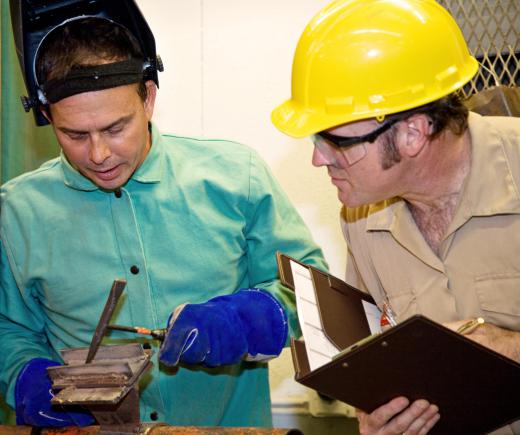Certified reference materials (CRM) are sample materials of known composition and other qualities that can be used for calibration, quality control, and related activities. In many regions, standards agencies regulate who can produce certified reference materials, distinguishing between these and materials without certifications by only allowing facilities that meet specific standards to issue certifications. The certificate indicates the products have been made or processed in a tightly controlled facility and they meet legal standards for use as reference materials.
In activities like calibration of lab equipment, technicians need a reference material to use. This material needs to conform to very precise standards of purity and quality; for example, in the calibration of a mass spectrometer, the researcher needs a known material to use in a test. Certified reference materials can be kept on hand for use in calibration, quality control, and spot checks to confirm that equipment is working properly. Researchers can also compare the reference materials with unknown samples to see how they match up.

Scientific supply companies sell certified reference materials and typically maintain a catalog of options on hand for purchase. Pricing can vary depending on the material, and access to some materials is restricted for security reasons. Toxic or potentially dangerous materials are typically only available through a limited number of resources, and these organizations are careful about which products they release and to whom. Nuclear reference materials, for example, are handled with extreme care, as are certain biological specimens.
These materials can include pure reference samples as well as compounds and solutions, some of which may be diluted to various degrees. If a custom certified reference material is needed for a very specific purpose, the manufacturer can evaluate the specifications and provide an estimate on the cost and delivery time. For complex tasks, the cost may rise considerably, especially if the customer wants to place a rush order to get a sample in a hurry for a particular project or need.
Facilities keep certified reference materials in a secure environment to reduce the risk of contamination and other issues. Access may be limited to specific personnel, who may need to sign materials out in a log and take responsibility for their safety and security while they are out of storage. Confidential and secure materials are often limited to use on the premises, and personnel cannot take them to remote sites or other facilities without explicit permission.
Ever since she began contributing to the site several years ago, Mary has embraced the exciting challenge of being a About Mechanics researcher and writer. Mary has a liberal arts degree from Goddard College and spends her free time reading, cooking, and exploring the great outdoors.

